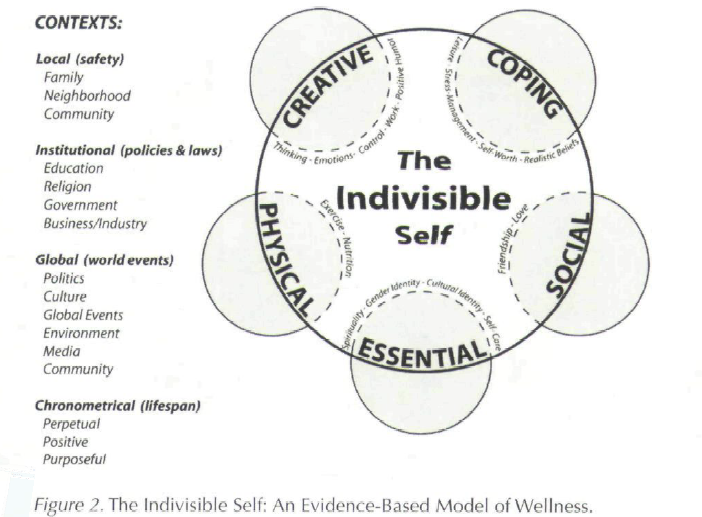|
Yoga is an ancient practice that originated far away. It has made its way around the globe in a wave of both physical healing and spiritual awakening, while simultaneously becoming a multi-billion dollar industry in the US. Some of the yoga teaching in the west has been simplified to a mostly physical practice by this commercialization and popularization, however yoga's philosophical foundation as a way to live a good life endures as well. These days, yoga is practiced not just in affluent studios, but also in schools, prisons, hospitals, and apparently on aircraft carriers (love this picture.) Thanks to modern science and research, we also know much more about how yoga impacts physical and mental health than ever before. Let's explore some things we know about how yoga helps, and then describe how this knowledge can be incorporated into a traditional talk therapy session. What Research ShowsFrom Ross, A., & Thomas, S. (2010). The health benefits of yoga and exercise: A review of comparison studies. Journal of Alternative & Complementary Medicine, 16(1), 3-12. doi:10.1089/acm.2009.0044 Physical Effects
How Yoga and Counseling Are Combined Here's a description of how I combine yoga and counseling. Other therapists/yoga teachers may do it differently, and chances are, my own style will keep evolving the more I learn from my clients what works best. Individual Sessions Individual counseling sessions can include yoga, if and only if, the client thinks it will be helpful. Yoga in session can range from simple seated stretches, to intentional work with the breath, to standing and seated poses on the floor. In the intake and beginning phases of counseling, personal goals are identified, and as we explore these goals through talk therapy, I will be thinking about how certain yoga postures or sequences may be helpful. We will talk about using yoga in this way, then plan a time to incorporate it, or go ahead and use it at that moment. The way that yoga is used in counseling is always up to the client, and my suggestions as counselor are just that... suggestions. For instance, a client who is struggling with self-image may be asked to try a yoga sequence that feels familiar and accessible, and notice their self-talk during the movement. How compassionate are their thoughts toward self? Are thoughts about self-image coming up? Are they critical? Then the client may be cued to work through a more challenging sequence and notice how the self-talk changes. After a few minutes of yoga (usually 15-30 minutes during an hour counseling session), I will sit with the client either on our yoga mats in an adjacent studio or back in the counseling office to discuss their experience, share what internal self-talk arose, describe how their physical or emotional state changed in response to the movement, and so on. Another example is a client who is experiencing social anxiety. The client may have a goal of learning new ways to manage anxiety so that it doesn't stop them from going out with friends. The client may notice a tightness in the chest or throat when thinking about going out with friends. So to address it, I might ask a client to imagine that they are about to go out with friends, notice in detail the sense of constriction or tightness they are experiencing in the chest and throat, then use some guided breathwork and throat opening stretches, while seated in the counseling room to work with the sensations. Group Sessions We can also work with yoga in group sessions. My ideal way to combine yoga and counseling in a group is to use a mixture of both physical yoga postures and discussion and/or personal reflection. My experience of vinyasa flow sequences is that often emotional "stuff" will come up as we move the body. As we work into the creaky, rarely accessed parts of our joints and tissues, an emotion may arise. Then from that emotion, a chain of thoughts may arise: memories, anticipations, judgments, regrets, etc. Taking time after a yoga practice to reflect on these emotions and chain of thoughts can help to move through them, put them away, or take more time attending to them. This can be accomplished through internal self-reflection, group discussion, or both. In an upcoming group yoga workshop, we will practice a one hour vinyasa flow class, then we'll take a short break and come back together to process our experiences. I will provide some paper and pencils to help participants process their yoga experience through writing or drawing. I will provide some prompting questions to help participants explore their wellness in several core areas shown below. I like this "Indivisible Self" model because it prompts us to think globally about what impacts wellness. (Myers, J. E., & Sweeney, T. J. (2005). The indivisible self: An evidence-based model of welIness (reprint). Journal of Individual Psychology, 61(3), 269-279. ) After we've processed internally, I'll offer a chance for participants to share and discuss their self-reflections. This part is absolutely optional, as some might prefer to keep their reflections private. A very important component of using yoga with group counseling is that all members agree to keep one another's shared thoughts and feelings confidential. Maintaining confidentiality is a key guideline and expectation for the participants in this type of group. In summary, we know that a regular yoga practice is helpful for many different conditions, ranging from chronic illnesses, to mental illnesses, to adjustment-related problems, to general stress and anxiety. We also know that talk therapy is helpful for these conditions. Combining yoga and counseling involves, first and foremost, respect for the client's autonomy and ability to choose the direction of therapy, along with gentle reminders toward self-compassion, self-acceptance, and an attitude of self-exploration in both body and mind.
5/17/2018 06:52:31 am
Hi:
Kambria
5/17/2018 10:01:17 am
Hi Danah, No I don't use any different billing codes when I incorporate yoga. They are billed as normal counseling sessions. Glad you found the information here helpful and that you are practicing the two together! 6/22/2021 10:52:49 pm
Thanks for explaining how trying out a yoga session can help you improve your mental self-image and keep the feelings of anxiety away. My colleague mentioned that his family and work problems are starting to interfere with his work. Maybe he should consider trying this out by looking for online yoga experts. Comments are closed.
|
AuthorKambria Kennedy-Dominguez, LPC-S |
Phone: 972.755.9120 | Fax: 214.723.5345
533 W. 12th Street Dallas, TX 75208
Privacy Policy Good Faith Estimate
©Flourish Counseling and Consultation PLLC 2024
533 W. 12th Street Dallas, TX 75208
Privacy Policy Good Faith Estimate
©Flourish Counseling and Consultation PLLC 2024



 RSS Feed
RSS Feed
